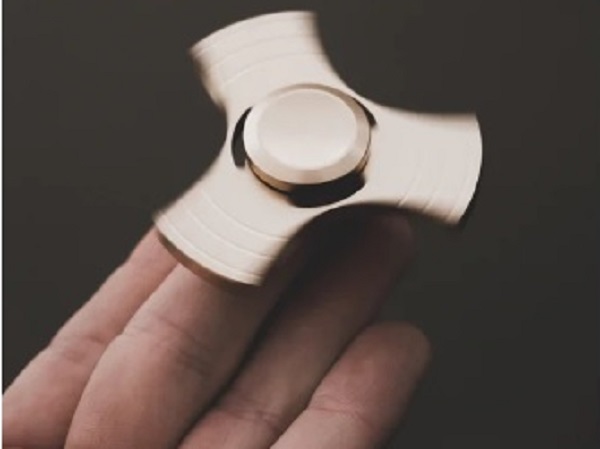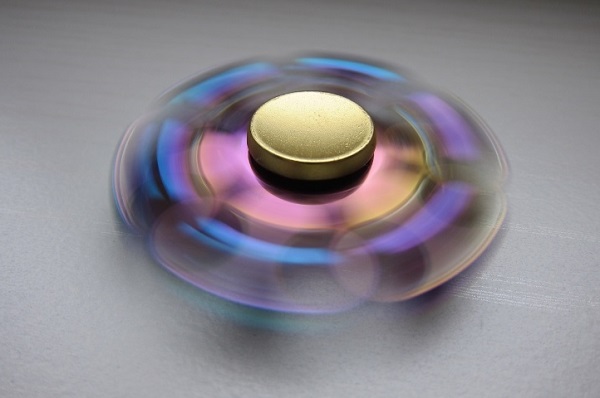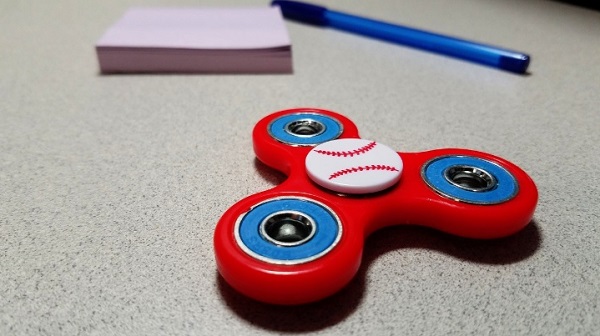Most crazes burn out quickly, but you’ll still find fidget spinners in the hands of many kids and adults several years after they took the world by storm back in 2017. While fidget toys aren’t exactly new, spinners have consistently been marketed as more than a toy. In fact, many consider them educational, therapy, and productivity tools.
Are the claims real with scientific studies to back them up? Not completely. But there is something to these weird gadgets that goes beyond a simple child’s toy.
Purpose of Fidget Spinners
Fidget spinners were designed to literally give you something to fidget with. It’s not really any different than fiddling with a pencil, doodling, wiggling around, or any other fidgeting you may do while you’re bored or restless.

As you spin the toy around, it takes the place of other types of fidgeting. Supposedly, these toys also help with focus, anxiety, ADHD, PTSD, and stress. This is what is supposed to set them apart from other types of fidgeting.
How They’re Used
Depending on who you ask, they’re used as a way to distract people from doing what they’re supposed to do, or they’re a useful tool. In fact, the way fidget spinners are used depends mainly on the person. The science behind them isn’t exactly clear as to whether they work or not.
Even though they’ve been actively studied since they hit in 2017 (when the craze began, even though they did exist since around 1993), experts are still divided on how they should be used and why.
Fidget Spinners for Increased Focus
One of the main benefits of using fidget spinners is to increase focus. Many manufacturers actually placed this claim on the packaging, leading many parents to buy them to help their kids. This is especially true for kids diagnosed with ADHD or ADD.

The science, though, doesn’t fully support those claims. In most cases, you’ll find mostly anecdotal evidence from individuals or small groups. For instance, a parent may claim their child suddenly focuses better after using a fidget spinner. Studies do show some correlation between fidgeting and attention spans. The studies mainly focus on kids, but show kids who move around more in their seats stay more alert and retain more information.
Notice this is about fidgeting in general versus a fidget spinner. However, the benefit of fidget spinners can be explained by the fact that movement in general can help improve overall focus.
On the other hand, a more recent study, published by Applied Cognitive Psychology, found fidget spinners actually impair memory and focus. They asked college students to watch a lecture and answer questions afterward. Those playing with fidget spinners stated they had trouble staying focused and performed worse. A second group that claimed spinners had already been helping them still performed poorly on the test.
Aiding in Productivity
With conflicting studies, is there any hope that fidget spinners can aid in productivity? One research group says maybe. The group found that many people use fidget spinners and even random objects to stay focused during lengthy tasks or boring meetings. By staying focused, they’re more productive.
For some, it’s more about finding a more mindful state and letting go of current stress. Studies have shown that stress is incredibly harmful, including reducing productivity.
So, yes, these toys may aid in productivity, but only if they’re not a distraction. More on that in a moment.
Fidgeting Is Helpful
The one thing most studies agree on is that fidgeting is helpful. That doesn’t necessarily mean using a fidget spinner. While experts vehemently disagree on whether fidget spinners are tools or toys, movement has been proven to help working memory, which is the part of memory processing new information. That’s why exercise is often encouraged as a focus tool.
Most studies involving fidgeting and memory tend to focus on those with ADHD and autism. A study by John Ratey, M.D. shows a connection between minimal fidgeting and an increase in norepinephrine and dopamine. Both are chemicals that boost focus and attention span.
Studies are currently being done to see if fidgeting could be helpful in dementia patients as both a focus and calming tool. Some are seeing positive results, but there’s nothing definitive yet.
Multitasking with Fidget Spinners

Fidgeting is sometimes considered a form of multitasking. That’s why some say fidget spinners are more of a distraction than anything else. However, for people with ADHD, having a secondary focus in the background, such as a fidget spinner or even just music playing, actually increases focus on the primary task. It’s a unique form of multitasking that may be beneficial.
Productivity Tool or Toy?
Now that you know the science behind fidget spinners, are they productivity/focus tools or just toys? The answer is it depends. There are many ways you can work from home without being distracted. But if you are easily distracted and need something to calm you down or stay focused, then use them. However, test yourself to see if they’re really helping you or whether they may be distracting you. While they can be helpful, they don’t work the same for everyone, so see how they affect you.

